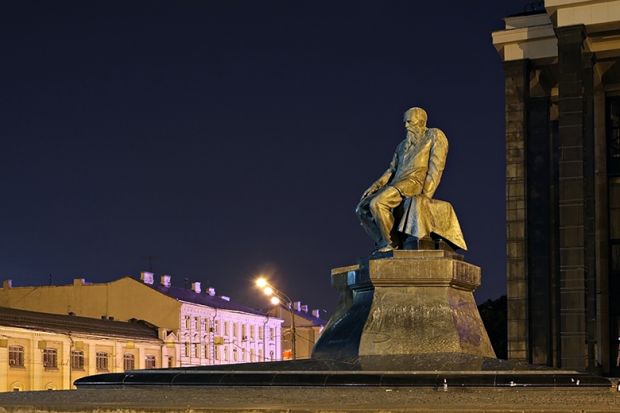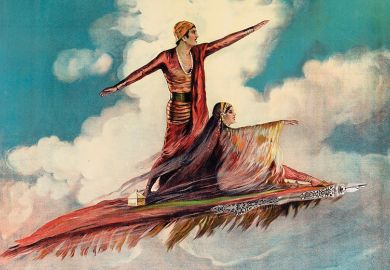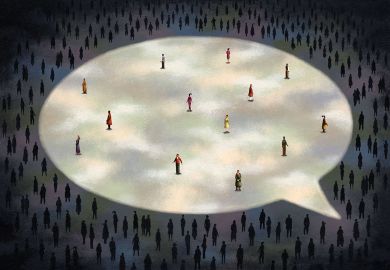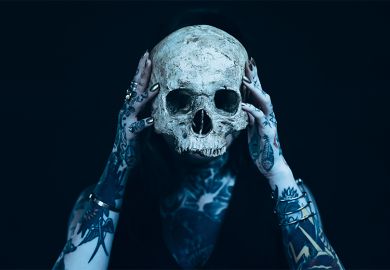In one of his popular novels, Scottish writer Alexander McCall Smith describes a neat way out of a boring party conversation. To get yourself and your drink as far away as possible from a dull person you just need to say: “Religion! Now, let’s really talk about it!” For the past two decades, a similar mood has been hanging over academic discussions of religion in Russian studies, particularly those focusing on the influence of Christianity in Russian art. Suppressed under the Soviet regime, scholarly investigations of religion in literature and culture struck back with a vengeance in Russia and hit studies of literary giants such as Leo Tolstoy and Fyodor Dostoevsky particularly hard. Fleeing a “born again” Dostoevsky reader, intent on discussing their literary epiphany, at a conference in St Petersburg or Moscow became a rite of passage for a new, post-Soviet generation of Slavists.
John Givens’ finely balanced study is perhaps a sign that this period of over-compensation is over, and a new era of rigorous research is finally upon us. Inspired by conversations with his stepfather, a former Catholic priest, he has produced what he calls a study of “Russian Christology” – an examination of images of Christ as they appear in works of literature from a classic mid-19th century Realist novel to Venedikt Erofeev’s Moscow to the End of the Line (1969). The book’s main strength, however, lies not in its thorough survey of Christ figures in the work of Tolstoy, Dostoevsky, Mikhail Bulgakov and Boris Pasternak, but in its provocative argument.
At the centre of Givens’ investigation is an approach he calls via negativa – a strategy of affirming faith through its negation. Rooted in the religious practices of Orthodox sects, this method echoes in Russian literature precisely in an abundance of negatively characterised Christ-like figures. Prince Myshkin in The Idiot, Nekhlyudov in Resurrection, Yeshua Ha-Nozri in Master and Margarita and Pasternak’s Zhivago form a gallery of negative images of Christ, lined up to provide an answer to Givens’ main question: why do these Russian writers need to denigrate Christ in order to explore ideas of faith? His answer – negative Christology provides a space for a renewal of faith – is intriguing.
To his credit, it is also backed up by insightful readings of primary texts and an erudite knowledge of Russian culture. This impressive grasp of context is most apparent in the book’s two survey chapters: “The century of unbelief”, describing the rise of secularism in Russia before the Revolution, and a companion chapter, “The century of belief”, which explores the religious underpinnings of Russian modernism and ideologised culture of “the Soviet century”.
Ready to challenge dogmas of religious history in these two chapters, this book is perhaps more traditional in its approach to the Russian canon and the established bounds of academic disciplines. There is, astonishingly, not a single female author listed among the primary sources, and overall this study stays firmly within the confines of literary rather than social history. Minor limitations aside, this deeply engaged study is a welcome contribution to the growing corpus of contemporary studies of Christianity in Russia.
Margarita Vaysman is a lecturer in Russian at the University of St Andrews.
The Image of Christ in Russian Literature: Dostoevsky, Tolstoy, Bulgakov, Pasternak
By John Givens
Northern Illinois University Press
329pp, £45.00
ISBN 9780875807799
Published 12 June 2018
后记
Print headline: A space for the renewal of faith




